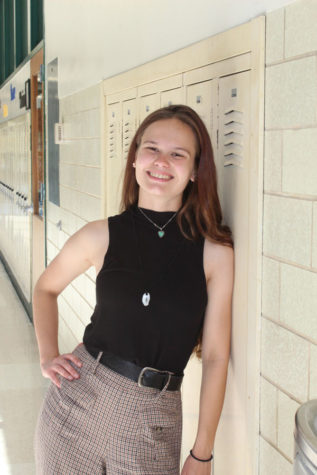While education hopes to prevent sexual assault from occurring, as well as help people better understand the victims of sexual assault, in-school counseling is available to help students who were victims of sexual assault.
Emily McDonald, a counselor in the McGowan building, explained how she typically learns students have been assaulted or harassed.
“Typically, they would either tell a teacher and the teacher would report it to us, or they would come in here and talk to us,” McDonald said. “Depending on what the situation was, we always take it case by case; we might need to go to a principal or go to a higher level, or it’s something we’d have to discuss with the student or a parent more.”
There are a variety of ways the school deals with sexual assault and harassment. The actions taken by the school depend on what exactly happened to the student, and whether or not the perpetrator was another student at the school.
“If it is something that can be addressed pretty easily, if someone is being harassed in class, we could separate the students, maybe move a student out of class, or things like that, something that is an easy fix,” said McDonald. “If it’s something more like a sexual assault, it [goes] to more of a law enforcement situation, and a student has to do a court case or testify against someone. We’ve had a few instances of that.”
Sexual violence, especially assault or rape, can have a major impact on the well-being of a person.
According to the National Sexual Violence Resource Center, 81% of women and 35% of men who are victims of sexual violence report short or long-term impacts on their life as a result of sexual violence, including a diagnosis of Post-Traumatic Stress Disorder (PTSD).
The impact sexual violence has on a person depends on the exact situation that took place, according to McDonald, and can have varying impact on a person’s in-school performance.
“I think it depends on the person, who the victim was,” said McDonald. “It’s pretty similar: they’re scared, have lower self esteem, they feel worried. Sometimes students will become suicidal, so it definitely has an effect. I think it’s pretty devastating no matter who it was.”
Typically, if a student struggles significantly after their assault, McDonald said she recommends them for counseling beyond what is offered at the school, and sometimes even gets involved with the police.
“We do a lot of referring; the YWCA has a rape crisis, they do counseling, so we make referrals for that,” said McDonald. “I’ve never had to testify [in court], but I have talked to law enforcement officials about something that came up in one incident.”
The most important job a counselor has, in a situation involving sexual violence, is to be someone a student can talk to and is comfortable with, according to McDonald.
“Being a counselor is just being there to listen to the student,” McDonald said. “We are not a law enforcement agency, we are not arresting students who may be perpetrators. I think it’s more of a comforting environment for the students to come talk to us for the legality part of it.”
Sexual assault is an epidemic, but students are being armed to fight against it with education and safe spaces to report incidents.
